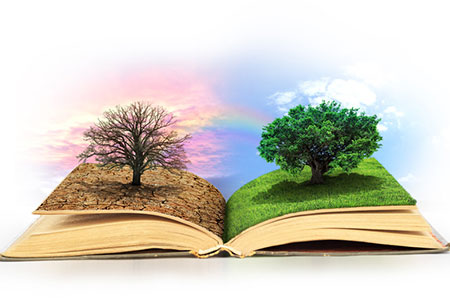wisdom
Learning The Lesson Is The Only Way Forward
 Doing readings for people all over the world, I am asked ‘why’ questions every day. Why am I so unlucky? Why does nothing ever go right for me? Why is God punishing me? Why can’t I ever win in life? Why am I never successful and happy like everyone else?
Doing readings for people all over the world, I am asked ‘why’ questions every day. Why am I so unlucky? Why does nothing ever go right for me? Why is God punishing me? Why can’t I ever win in life? Why am I never successful and happy like everyone else?
Prior to coming to this earth plane, each of us asked to experience certain life challenges and lessons for our soul growth. For example, some of us asked for the lesson of unconditional love. However, to achieve unconditional love, someone must first cause us harm or hurt, for us to learn to truly forgive them. Only then can we truly experience unconditional love.
I have had many clients tell me over the years that they will never forgive someone for what they had done to them. They refuse to let it go. It is indeed a difficult lesson. In fact, all life lessons are very challenging. To make matters worse, if we do not successfully learn the lesson to complete the process, the same lesson will be presented to us again, and again, until we do.
This is why you someone will repeatedly have the same relationship issues with different partners. No matter who they form an attachment with, the complications, challenges and dramas are always more of the same. The spiritual growth lesson is never dealt with and released. Many people spend a lifetime in these never-ending loops.
Ask yourself what you want to see change or happen in your life. What do you consider to be the most positive, best outcome for your future? Then imagine for a moment that you have already achieved this life goal. Now, how does it feel to be in that positive place? If you can see yourself in that place and sense the love of your guides and angels in that place with you, then and only then, are you truly ready to move forward with the positive energy you need to actually achieve it.
The New Earth Children
 A phone reading with a long-standing client just a few days ago made me particularly aware the special souls incarnating in recent years.
A phone reading with a long-standing client just a few days ago made me particularly aware the special souls incarnating in recent years.
The client used to be a regular at my home office years ago, until I relocated. Now we consult by phone. In those days she was approaching forty and in a high-powered job. She had been told by specialists that she had little hope of becoming pregnant.
However, about 12 years ago, the possibility of a pregnancy came up particularly strongly in her reading – more insistently than ever before. She dismissed the possibility after years of disappointment. Her sister came to me for a reading two weeks later and told me my client was still in shock after finding out that she was actually pregnant!
It was no easy pregnancy and at various stages she would come to visit me for readings, because she was curious about the little soul who seemed so determined to join her and her husband in this life. The readings revealed the old soul personality of her child and how he would be wise beyond his years. Her boy is now eleven years old and indeed wise beyond his years. He also has a master number 11 as his life path number.
Her reading recently reminded me of so many similar readings I´ve done for other parents who were to be parents of New Earth Children.
Over the years, I have encountered many spiritual teachings suggesting these ‘special children’ are playing an important role in the current global shift in consciousness and New Earth awakening. These new children have been arriving on the planet for several decades now.
In the late 80´s, a colleague of mine complained about the love-hate relationship she had with her husband. She also mentioned her eight-year-old son who was such a “wise little man” and how he would counsel them with profoundly sage remarks. “I cannot begin to imagine how this child was made by the two of us with all of our baggage,” she confessed.
Banish Fear With The Power Of The Heart
 I woke up from a powerful dream this morning. I was on the top floor of a high-rise building that had been struck by lightning. The building slowly started to move, to quake. I could see from the window neighboring structures being destroyed, and I sensed my own building’s collapse was imminent…with me inside it!
I woke up from a powerful dream this morning. I was on the top floor of a high-rise building that had been struck by lightning. The building slowly started to move, to quake. I could see from the window neighboring structures being destroyed, and I sensed my own building’s collapse was imminent…with me inside it!
Could I make it down the stairs in time? I was about to try, but my exit was delayed by a pair of sparkling opal earrings that I simply had to take with me! But I could not manage to hold onto them for long. They kept slipping out of my hand, while the apocalypse was happening all around me.
I just had to bring the blingy earbobs – I am a Taurus, after all.
Then, as I gazed at the two little treasures, a stark truth hit me. I suddenly realized these material things do not matter in life and it shouldn’t delay me further. I also understood for some reason that the earrings now belonged to someone else and would bring them much joy in future. So, I returned the jewelry to the table where I found it…just before my building finally came crashing down.
Certainly, a lot to unpack. Temptation, ownership, materialism, impermanence, spiritual values, mortality, life goals.
But let’s get back to the dream.
Somehow, incredulously, like in a Marvel Comics adventure, I landed outside, unharmed. Then I found myself on a raft, with my immediate family all suddenly with me. We were rapidly floating together down a river.
Then it was time for us to get off, before we got hurt, but we were reluctant to do so. Suddenly, there was a friendly tribe of indigenous people on the bank of the river, expectantly waiting for us by a wall. So, we felt safe to dive off the raft, and we did so. The tribe members showed us the way through a hidden opening in the wall, and we all made it out safely to someplace new!
Embracing The Uncertainty Of Change
 One of the earliest life lessons I had to learn the hard way is that change is the only thing that ever consistently happens in life. We cannot avoid it. It is fundamental to our journey in this lifetime to learn to embrace change, as without it we cannot grow and evolve as spiritual beings.
One of the earliest life lessons I had to learn the hard way is that change is the only thing that ever consistently happens in life. We cannot avoid it. It is fundamental to our journey in this lifetime to learn to embrace change, as without it we cannot grow and evolve as spiritual beings.
Yet, change causes much fear and apprehension for many people. It can be daunting. This is in fact one of the reasons why clients contact me for advice and predictions. In life it is vital to always be prepared for change.
Being mentally and emotionally prepared gives us a greater sense of control over any forthcoming event and thus alleviate some of its stress. Who wants to remain stagnant anyway? It is vital to look for the good that change can bring, rather than dwell on any potential negative impact it could bring about. We need to take on board the necessity to learn and strengthen from it.
Change comes in many forms. For example, it is estimated some people change their homes up to eight times in their lifespan. How stressful is that? But instead of focusing too heavily on the downside, such as the stress of buying, selling and packing, spirit advises we see a new home as a beautiful new chapter in our lives. Think of it as an exciting fresh start and allow yourself time to adjust. You may soon be happier in your new abode than you could ever imagine!
Beginning a new job is equally stressful. For whatever reason you find yourself in new employment, the very thought of walking into a new workplace on a Monday morning, meeting new colleagues in unfamiliar environment is always daunting. However, rather than be afraid, advises spirit, why not congratulate yourself for being there in the first place?
The Wisdom Of The Trees
 The annual seasons profoundly affect perennial trees. Each year many species of perennial change color, release their leaves, go dormant, and then come back to life in the spring with new growth.
The annual seasons profoundly affect perennial trees. Each year many species of perennial change color, release their leaves, go dormant, and then come back to life in the spring with new growth.
As humans we could learn a lot from these trees. Firstly, they are naturally in tune with the seasons. They can ebb and flow with the natural order of things. For a season their leaves will gather up energy from the sun for growth. They bask in the light and find nourishment. And they can do this because of their ability to release the old when the time comes.
There are times in our lives when we also need to release the old things from the past. All our life experiences have natural course and expiry date to them. All our relationships in this physical life are also temporary experiences. Knowing this allows us to be in the flow with the cycles of life and the afterlife.
Too often we resolutely cling to the past, which causes us to feel stuck or keeps us from developing the types of relationships and experiences we truly want. If the trees were to hold on to their old dead leaves, there would be no room nor energy for further growth. It would be impossible for them to thrive and be nourished by the sun.
There is also no way for trees to perpetually grow. One time I planted a tree late in the season. I gave it lots of nourishment, but over the winter it died off. By fertilizing the tree, I was creating a condition that would not allow it to survive. The fall is when trees release their leaves so the wood can harden off.
Too often people want to run to the next experience, and the next experience. Or they they try to make an experience last indefinitely. They want to make the ‘summer’ of their peak human experiences last forever. They never give themselves the opportunity to let go and properly grieve what has been, in order to recenter and become stable and energized for the next spring.
It is important for us to acknowledge our actual life experiences and move through the winter seasons in a way that prepares us for the next season. There is a temptation to just keep running to the next experience or next relationship to satiate a previous painful experience. However, in doing so we create situations that are toxic and unsustainable.

